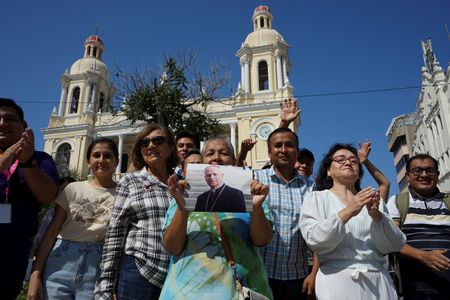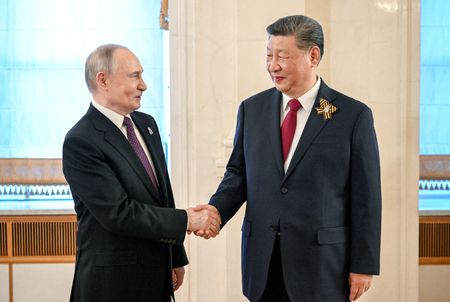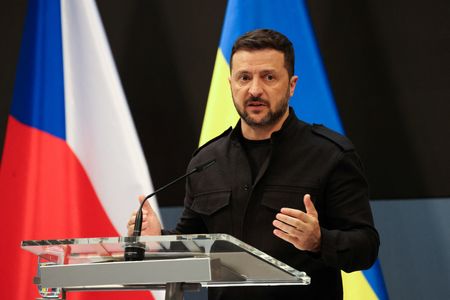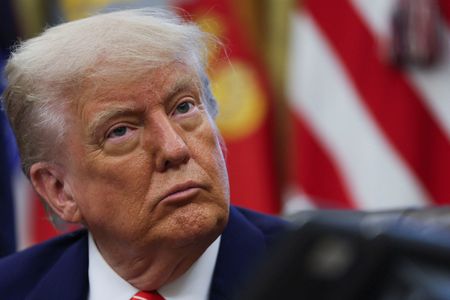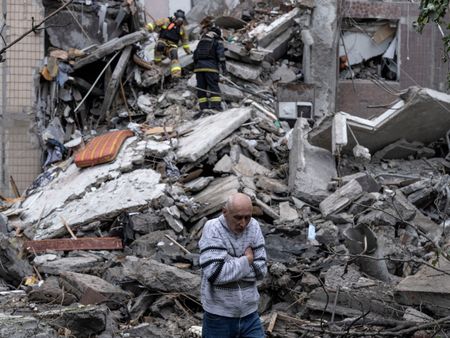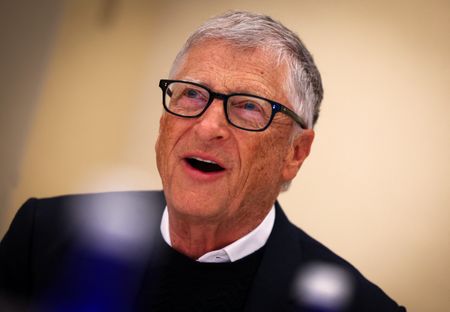KYIV (Reuters) – Ukraine will host a group of foreign ministers in Lviv on Friday to endorse the establishment of a special tribunal to prosecute the leadership of Russia, Belarus and North Korea for the crime of aggression against Ukraine, a senior Kyiv official said.
The tribunal will be set up by the Council of Europe, the continent’s leading human rights watchdog that was formed after World War Two to uphold rights and the rule of law. The full list of incoming ministers was not public. Poland and France have both said they will visit Lviv on Friday.
The meeting will fall on the same day that Russian President Vladimir Putin hosts Chinese President Xi Jinping and other leaders for a military parade on Red Square to mark the 80th anniversary of the World War Two defeat of Nazi Germany.
“The special tribunal may start operating next year. This year we are completing the legal formalities, and the Council of Europe will begin to form – recruit judges, a secretariat, prosecutors, implement rules and procedures,” Iryna Mudra, a presidential aide, said in televised comments.
Russia denies its troops have committed atrocities in Ukraine since its forces launched a full-scale invasion in February 2022. Ukraine says Russian troops have committed many thousands of war crimes.
The International Criminal Court has issued an arrest warrant against Putin over the deportation of Ukrainian children. Moscow says the warrant is meaningless, “null and void”.
Belarus has not directly taken part in the war against Ukraine, but it was used as a launchpad for invading Russian forces in 2022. North Korea has supplied troops and vast quantities of munitions to Russia, Ukraine and Western governments say.
Mudra said the special tribunal would only target the upper echelons of power.
“These are approximately 20 people who planned, prepared, and directed the conduct of an aggressive war against Ukraine,” she said.
She said the tribunal’s statute and founding documents had been developed by a group of 40 countries.
“The full text has been formed and tomorrow a high-level event will be held in Lviv, at the level of foreign ministers, where political support for the creation of the special tribunal will be expressed,” she added.
European Union foreign policy chief Kaja Kallas said the “final political endorsement” for the establishment of the war crimes tribunal would come on Friday.
The crime of aggression is broadly defined as the invasion of, or attempt to gain political and military control over, another sovereign state.
While the International Criminal Court is the world’s permanent war crimes court, it cannot prosecute aggression in the case of Ukraine. It can only prosecute aggression if both countries involved are ICC members who signed a special extra agreement.
To bridge the aggression “impunity gap”, Ukraine and several backers including the European Union have been pushing for an ad-hoc tribunal for aggression.
The crime of aggression is generally considered a leadership crime, which means the tribunal would only look at several dozen officials of the very upper echelons of government and the military.
(Reporting by Tom Balmforth, Yuliia Dysa and Stephanie van den Berg; editing by William Maclean)

